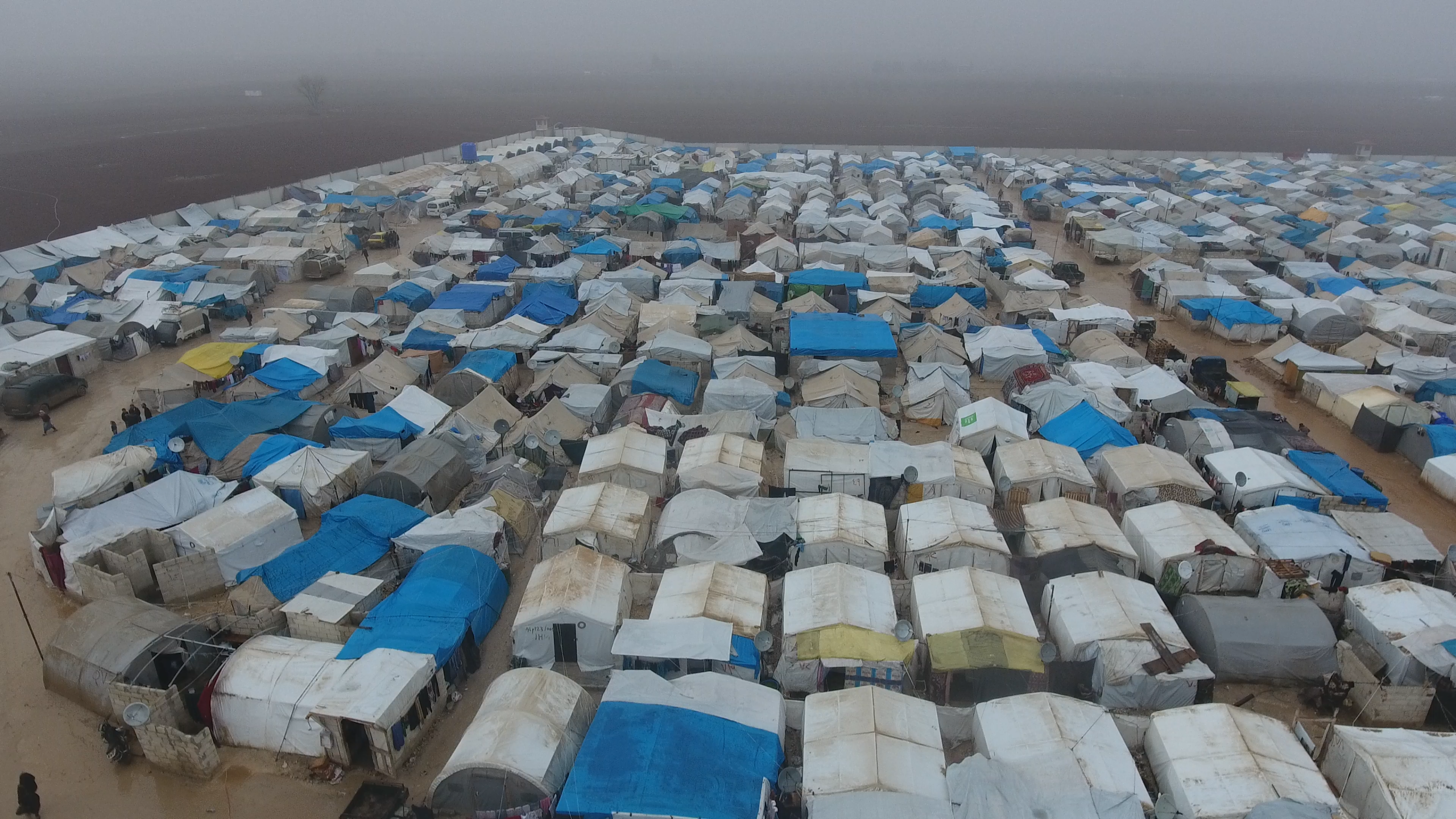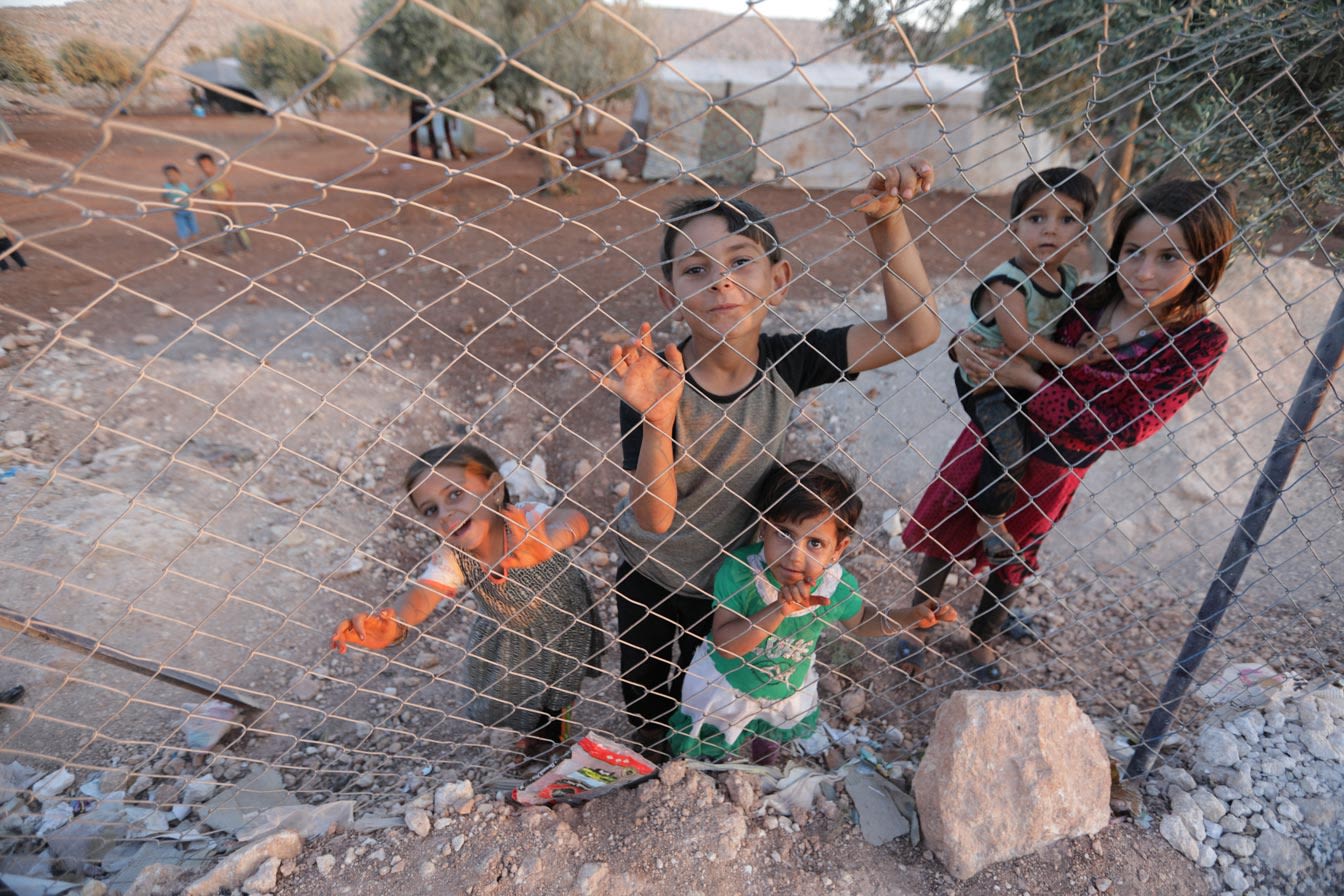70 million people and their painful stories
Number of refugees worldwide increases year after year

The first shell landed close to him. Layth closed his eyes so he would not see the death scenes around him.
He heard his mother’s cries as she was bidding him farewell and heading to the unknown. With his tiny hand, he wiped her face off, his tears, and then became displaced forever.
The second shell landed on Abdulbasit’s house blowing off his two feet. With his tiny hands, he started to grope for his feet in absolute horror. He then cried out, “Papa, carry me up”.
The third shell fell, making a terrifying sound. Ilan rushed to the border with his family towards the seashore.
Unfortunately, the boat overturned and they drowned. The waves took his body to the shore where he decided to sleep on the shore sands forever.
With her little hand, Afaf stroked her bones protruding through her skeletal frame due to starvation. She could not find anything to eat except for some leaves of the Yemeni trees. She ate the leaves and fell asleep.
There are sacred, starving, displaced orphans.
Seventy million people have been forced by persecution and conflict conditions to flee their homes and make their journey into an unknown future.
One person displaced every two seconds

Today, we are witnessing the highest levels of displacement ever on record.
An unprecedented number of 70.8 million people around the world have been forced from their homes. Among them are nearly 25.9 million refugees, over half of whom are under the age of 18..
There are also millions of stateless people who have been denied a nationality and access to basic rights such as education, healthcare, employment and freedom of movement.
Today, nearly 1 person is forcibly displaced every two seconds as a result of conflict or persecution, according to the UNHCR.
There are three groups of displaced persons
According to the UNHCR, within the 70.8 million figure of the displaced people, there are three main groups.
The first group is refugees:
they are the people forced to flee their country because of conflict, war or persecution.
In 2018, the number of refugees reached 25.9 million worldwide, 500,000 more than in 2017.
The second group is asylum seekers:
they are people living outside their country of origin and receiving international protection, but awaiting the outcome of their claim to refugee status.
At the end of 2018, there were 3.5 million asylum seekers globally.
The third group is the internally displaced persons:
the third and biggest group, at 41.3 million, is people displaced to other areas within their own country.
Only 92,400 refugees were resettled in 2018, less than 7% of the total number of people awaiting resettlement, while some 593,800 refugees were able to return home, while 62,600 refugees obtained citizenship.
There are nearly 25.9 million refugees, over half of whom are under the age of 18
Only 92,400 refugees were resettled in 2018, less than 7% of the total number of people awaiting resettlement.
while some 593,800 refugees were able to return home, while 62,600 refugees obtained citizenship.
19,000 migrants have drowned!
Calling the rickety boats used by the refugees to flee their homes as death boats is very telling.
Figures indicate that 19,000 migrants have drowned over the past six years in the Mediterranean during their escape journey.
Large numbers of migrants use rubber boats to cross the Mediterranean to Europe.
According to the International Organization for Migration (IOM), nearly 72,263 migrants and refugees arrived in Europe by sea in 2019.
Greece received the largest number of migrants who left for Spain after leaving its territory.
The life jackets and the remnants of the rubber boats tell the story of the horror journey, which more numbers of adventurers are making to Europe.
They search for security and a future, which is no less difficult than the wars and conflicts they have seen in their country and that have forced them from their homes.

